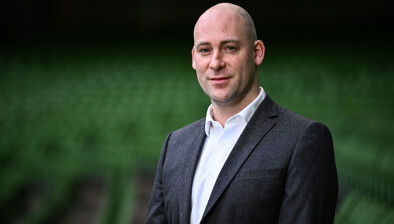Court of Appeal: Expert witness engaged in ‘wholesale abdication’ of duty to court in personal injuries case

The High Court has dismissed an appeal in a personal injuries action where the plaintiffs were exposed to toxic chemicals following the installation of spray foam insulation. In reaching this decision, the court was highly critical of expert evidence which was led by the defendant.

About this case:
- Citation:[2022] IECA 254
- Judgment:
- Court:Court of Appeal
- Judge:Mr Justice Seamus Noonan
Mr Justice Seamus Noonan described several shortcomings in the expert’s evidence, stating that he engaged in a “wholesale abdication […] of his duty as an expert witness”. Accordingly, the court was satisfied that the trial judge was correct to disregard the expert’s evidence entirely.
Background
The plaintiffs were a married couple with a young child at the time of the incident. They engaged the defendant to upgrade the insulation in their house using a product called Icynene.
Icynene was a form of spray polyurethane foam and was made up of two compounds, both of which were highly toxic. A person carrying out the spraying of the foam was required to wear full protective equipment and breathing apparatus.
The insulation installation was scheduled to take two days. The defendant arrived and workmen removed old fibreglass insulation and sprayed the new SPF insulation. In particular, certain holes were left in the ceiling to the attic after the first day. The SPF insulation had also been sprayed in the attic.
The wife and the child stayed in the kitchen for most of the day and the family slept in the house that night. The defendant had advised leaving the windows open but the husband closed the windows when it got cold.
Ultimately, the plaintiffs developed severe Reactive Airways Dysfunction Syndrome as a result of being exposed to the toxic SPF chemicals. Subsequently, the plaintiffs brought claimed for personal injuries against the defendant, claiming that he was negligent in installing the insulation. In particular, it was claimed that the defendant should not have allowed the plaintiffs to be in the house while installation was taking place and for two hours afterwards. It was also claimed that proper mechanical ventilation was not provided by the defendant and, consequently, the plaintiffs should not have been in the house for 24 hours after installation.
At trial, the defendant proffered expert evidence to refute the allegations that he had been negligent in installing the insulation. The expert, Dr George Thompson, was a toxicologist from America and came into the case “quite late in the day.” The defendant had previously withdrawn the report of an Irish toxicologist and did not call him for evidence. The essential evidence was that the chemicals dispersed within 30 to 90 minutes and therefore there was no negligence by the defendant.
At the conclusion of the trial, the High Court rejected the entirety of Dr Thompson’s evidence, stating that he “was not acting as an independent witness” and that he “was a very partisan advocate who sought to denigrate the character of the plaintiffs”. Some issues with his evidence included that Dr Thompson had delivered a paper to the SPF industry entitled “How to avoid a lawsuit” and that he relied on research papers which were not peer-reviewed, but instead commissioned by SPF companies.
Dr Thompson also gave opinion evidence on the truth of the plaintiffs’ evidence as to how long they remained in their house and provided an “alternative causation theory” that it was fibreglass which caused the irritation to the plaintiffs’ airways. Dr Thompson’s report also contained a section examining the issue of res ipsa loquitur under Irish law.
The trial judge determined that the defendant was negligent in failing to properly ventilate the house which exposed the plaintiffs to the toxic chemicals. The court awarded €400,000 to the husband, describing his injuries as being near the upper limits of compensation. Including special damages, a total of €1,095,000 was awarded to the plaintiffs.
Court of Appeal
The defendant appealed the decision on liability and quantum to the Court of Appeal. It was claimed that the trial judge was wrong to conclude that adequate ventilation had not been provided. A central issue in the appeal was whether the trial judge was correct to entirely exclude the evidence of Dr Thompson, having regard to the court’s findings.
In a 60-page judgment, Mr Justice Noonan examined the evidence which had been proffered by Dr Thompson in the case. It was noted that expert witnesses were obliged to assist the court and a judge was under no obligation to accept the evidence of an expert, even if it was uncontradicted (see Donegal Investment Group plc v. Danbywiske [2017] IESC 14 at [7.1], [2019] 1 IR 150).
The court commented that it was “unfortunately commonplace for experts to succumb to the natural tendency to put the interests of their own clients first, unconsciously or otherwise”. The “hired-gun syndrome” was “perhaps an inevitable by-product of adversarial litigation,” and “more needs to be done by way of augmented rules of court”. There was “nothing to prevent litigants with deep pockets consulting any number of experts until one is found with will support the case being made”.
In the absence of transparency regarding the engagement of experts, there was a potential litigious advantage conferred on well-resourced litigants, the court said.
The court outlined the classic statements on the duties of expert witnesses contained in cases such as National Justice Compania Naviera S.A. v. Prudential Assurance Co. Ltd [1993] 2 Lloyds Rep and it was noted that the overriding duty of an expert was to provide an objective opinion (see Fitzpatrick v. DPP (Unreported: 5 December 1997); Emerald Meats Ltd. v. Minister for Agriculture [2020] IESC 48).
Considering Dr Thompson’s evidence, the court described issues which gave rise to “serious cause for concern”. It was “entirely beyond his competence and entirely inappropriate” for Dr Thompson to give an opinion on res ipsa loquitur. His report was “virtually devoid of any reference to ventilation” even though this was crucially important to SPF operations. In fact, Dr Thompson made no enquiries of the defendant as to how proper ventilation was achieved and his evidence was exclusively predicated on the defendant’s instructions on key issues.
Further, Dr Thompson repeatedly accused the plaintiffs of lying and refused to withdraw the allegations when confronted with contradicting evidence. He also purported to give medical opinion on the plaintiffs’ condition.
Mr Justice Noonan agreed with the trial judge’s experience of “never having encountered such an approach to giving evidence by an expert witness before our courts”. The expert “donned the mantle of a partisan advocate” and the trial judge was correct to exclude his evidence in its entirety.
Having determined this issue, the court held that negligence had clearly been established by the plaintiffs in the rest of their evidence. There was an “absolute failure” by the defendant to take reasonable steps for the plaintiffs’ health and safety. Further, the expert evidence proffered by the plaintiffs established that it was overwhelmingly likely that the injuries were caused by exposure to the SPF chemicals.
Conclusion
The court was satisfied that the High Court was correct in its findings on negligence and liability. The court held that the figure awarded by the trial judge was “on the high side” but it was not so disproportionate that the court would interfere with it. The appeal was therefore dismissed.
Duffy v. Brendan McGee trading as McGee Insulation Services and Anor. [2022] IECA 254











